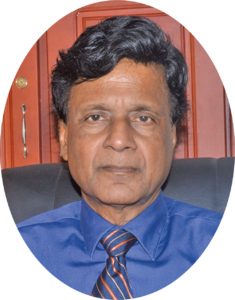 We noted CLR James saw Cheddi Jagan’s vacillation, in 1958, and refusal to clearly state his personal position – as the leader of the PPP — on the WI Federation as trying to have it both ways: maintaining the support of his mainly Indian base while signalling he was “principled” for not accepting a toothless British WI Federation. In his 1956 address to his rump PPP, he accepted Burnham had taken most African support after the 1955 split.
We noted CLR James saw Cheddi Jagan’s vacillation, in 1958, and refusal to clearly state his personal position – as the leader of the PPP — on the WI Federation as trying to have it both ways: maintaining the support of his mainly Indian base while signalling he was “principled” for not accepting a toothless British WI Federation. In his 1956 address to his rump PPP, he accepted Burnham had taken most African support after the 1955 split.
But we want to suggest Jagan’s seeming vacillation arose out of his acceptance of a premise by the leaders of the West Indian islands – including Burnham: that it was an act of “betrayal” for Indians to be concerned their interests might be swamped in such a federation, where the overwhelming majority would be of African heritage. For Jagan, the “Simon-pure” Marxist, according to James, the betrayal was one of their “class interest” over race/ethnic/communal interests, and as such was indefensible. Two decades later, when he raised the issue of “racial discrimination” against Indians since 1964 while discussing a coalition with the PNC, Jagan was speechless when Burnham enquired slyly, “What is the socialist content of race, Comrade?”
But for the leaders of the Caribbean, the “betrayal” stemmed from another source – one which still animates them in the 21st century: that the West Indies are part of the Pan-African nation; and, as such, groups such as Indians should concede supremacy to “African” concerns. The irony, of course, is CLR James and Burnham, along with some others, such as Manley of Jamaica, also defined themselves as “Marxists”, but they still accepted the Indian “betrayal” thesis based on race/ethnicity.
In Jagan’s defence, the reality is from the last decades of the 19th century, “the Negro Question/ Problem” had been on the agenda of all “progressive” thought because of the patent lack of progress for that group after the end of slavery in the British colonies (1838) and the US (1865). There was – and still isn’t – a comparable analysis of the “Indian Question in the WI”. WEB Du Bois (1868-1963), for instance, had set the ball rolling for Africans and participated in the First Pan-African Conference in London in July 1900, organised not so incidentally by a Trinidadian, Henry Sylvester. Marcus Garvey (1887-1940) had launched his own Pan African “United Negro Improvement Association” (UNIA) in 1917.
Du Bois drafted the Conference’s “Address to the Nations of the World”, which declared: “The problem of the Twentieth Century is the problem of the colour-line”. Three years later, he was to explain this meant, “the relation of the darker to the lighter races of men in Asia and Africa, in America and the islands of the sea”. In 1933, Du Bois, who had moved to the left, wrote the seminal: ‘Marxism and the Negro Problem’. By then the Marxist CLR James would have moved from TT to England, and by 1938 had written “The Black Jacobins” to address the “negro problem” from a mobilisation standpoint. His TT childhood friend, Malcolm Nurse, would have become George Padmore, who joined the Communist International (Comintern) and in 1929 moved to Moscow. He quit in 1934 in disgust with what he considered Stalin’s equivocation on “the negro Question”, and returned to London.
In 1945, he, Guyanese Ras Makkonnen, WEB Du Bois, Moody of the League of Coloured People (LCP) et al convened the third Pan African Congress in Manchester, England, which was attended by Eric Williams, Grantley Adams, W Arthur Lewis, along with Kwame Nkrumah, Jomo Kenyatta – all of whom went on to leadership positions in their homelands with the ideas of that Pan African Congress to guide them. Burnham, in London from 1945, was a member of the LCP, which was given the task of circulating the papers of the Pan African Congress.
Jagan never appreciated this Pan African background of WI leaders, and very poignantly — when in 1957 he and Burnham attended Ghana’s Independence celebration — he strenuously attempted to have a meeting with Nkrumah and the WI leaders to breach their divide. The meeting never came off, but on his return he discovered one was convened by Padmore, by now PM Nkrumah’s assistant, with Burnham, Manley, Adams, CLR James and Patrick Solomon and other WI leaders.
Pledging their support, they convinced Burnham to come out in an anti-communist line against Cheddi Jagan, whom they feared would create an “Indian state” in the West Indies. Burnham did so declare on his return to Guyana, and was ensconced in power in 1964.
WI leaders turned a blind eye to his excesses against Guyanese Indians for over two decades.
Related posts
-

Granger, the PNC and power
Over the last year and a half, and especially during the post-NCM manoeuvres and elections hijinks,... -
Rigged elections in Guyana
Most Guyanese refused to believe that David Granger and the PNC – camouflaged as APNU/AFC –... -
Power hungry
On March 2, Guyanese thought they drew a proverbial line in the sand on the creeping...
